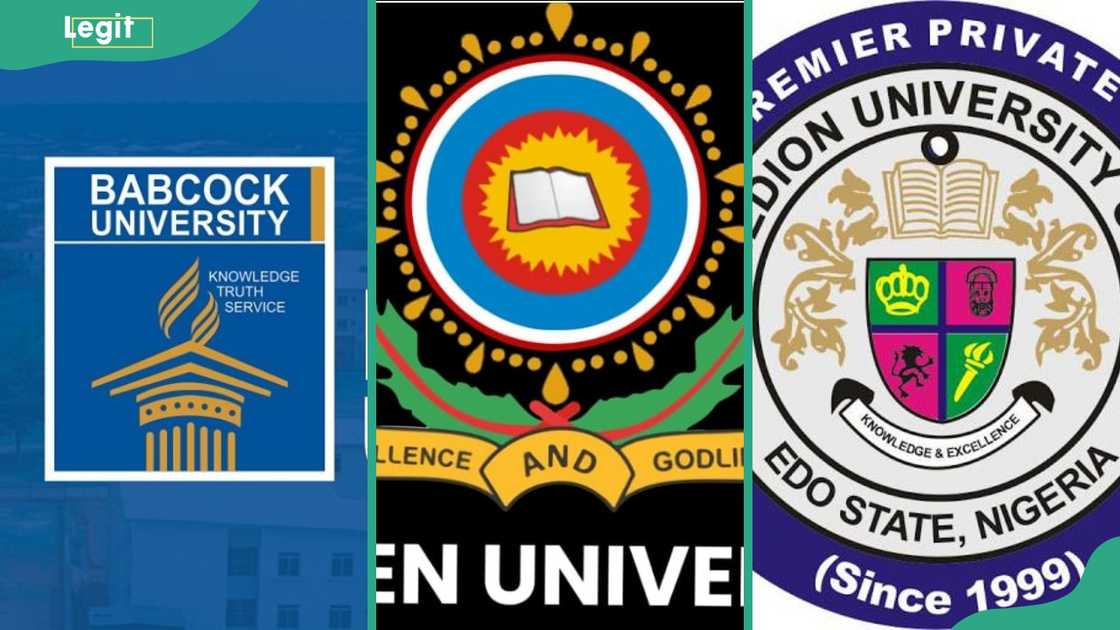Nigerian Tertiary Institution Admissions and JAMB Regulations

The Joint Admissions and Matriculation Board (JAMB) held its 2025 policy meeting on admissions on Tuesday, July 8, 2025, at the Bola Ahmed Tinubu International Conference Centre in Abuja. This crucial gathering brought together key stakeholders in Nigeria's education sector, including heads of tertiary institutions, to discuss and ratify policy guidelines and regulations for the upcoming academic year. A significant outcome of this meeting was the announcement of the 2025 admission cut-off marks for various tertiary institutions and the recognition of top scorers in the 2025 Unified Tertiary Matriculation Examination (UTME).
During the policy meeting, Dr. Tunji Alausa, the Minister of Education, made several pivotal declarations aimed at enhancing the integrity and effectiveness of the Nigerian education system. A major policy decision was the official fixing of 16 years as the minimum age for admission into tertiary institutions across Nigeria. This non-negotiable policy is designed to ensure that students possess the necessary cognitive development to meet the academic demands of higher education. While exceptions may be considered for academically gifted students who are younger, such cases must be meticulously documented and justified. The Minister sternly cautioned tertiary institutions against manipulating student age records to circumvent this age limit, warning that institutions found altering age records would face strict sanctions, although specific penalties were not detailed.
Beyond age regulations, Dr. Alausa also unveiled new measures to combat examination malpractice, which he described as a pervasive "cancer" within the system. The Federal Government is establishing a Central Examination Malpractice Unit within the Federal Ministry of Education, to be chaired by the Ministry’s Permanent Secretary, Abel Enitan. This unit will serve as a central database to document, track, and share data on malpractice cases nationwide, with the aim of prosecuting offenders under the Exam Malpractices Act. Furthermore, the government announced its commitment to support examination bodies like WAEC and NECO in fully adopting computer-based testing (CBT) across all national exams, a move intended to further reduce fraud and align with global best practices. This comes after an earlier, widely criticized policy in early 2024 by former Education Minister Prof. Tahir Mamman, which set an 18-year minimum age for university admission, a stance later reversed by Dr. Alausa in November 2024 to accommodate younger, gifted candidates.
Regarding admission scores for the 2025/2026 academic session, JAMB officially announced the minimum admissible scores following stakeholder agreement. Universities now have a minimum cut-off mark of 150, while polytechnics and colleges of education are set at 100. Colleges of nursing sciences have a slightly higher minimum of 140. While these are national minimums, institutions retain the autonomy to set higher cut-off marks to maintain their specific academic standards, provided they do not admit candidates below the agreed national thresholds. For context, in 2024, the national minimum cut-off for universities was 140, and 100 for polytechnics and colleges of education. This year's UTME recorded the highest performance in 13 years, with 0.88% of candidates scoring 300 and above, significantly up from previous years, and 29.3% scoring above 200. Despite allegations of malpractice, only about 21.5% of candidates ultimately achieved scores above 200.
A critical directive from the policy meeting, underscored by Minister Alausa, is that any admission into Nigerian tertiary institutions not processed through the Central Admissions Processing System (CAPS) is illegal. Introduced by JAMB in 2017, CAPS is an online platform designed to automate and streamline the admission process, ensuring transparency, fairness, and accountability by eliminating human interference and reducing opportunities for corruption, favouritism, and "backdoor" admissions. The Minister explicitly warned vice-chancellors, rectors, provosts, and governing council members that non-compliance would lead to severe sanctions, including the withdrawal of institutional assets and the prosecution of culpable officers or governing council members. JAMB, as the regulatory body, is mandated to oversee and regulate admissions, even though institutions initiate the process.
The Minister also highlighted a concerning disparity between available admission slots and actual student intake, particularly in vital fields like agriculture, education, engineering, and health sciences. Over 120 universities reportedly received fewer than 50 applications during the current admission cycle, indicating a significant underutilization of resources. Dr. Alausa emphasized that the challenge is not a lack of access but a need to realign and strengthen existing institutions, cautioning against the unsustainable trend of establishing new universities without consolidating older ones. Finally, the continued mandatory use of the National Identification Number (NIN) in the JAMB registration process was reaffirmed, as it is crucial for safeguarding the integrity of the admission system by preventing identity fraud and multiple registrations. Senator Shuaib Salisu, Chairman of the Senate Committee on ICT and Cybersecurity, further advocated for the criminalization of fraudulent admission practices and stringent legislative actions to hold institutions and administrators accountable for manipulating the system.
You may also like...
Diddy's Legal Troubles & Racketeering Trial

Music mogul Sean 'Diddy' Combs was acquitted of sex trafficking and racketeering charges but convicted on transportation...
Thomas Partey Faces Rape & Sexual Assault Charges

Former Arsenal midfielder Thomas Partey has been formally charged with multiple counts of rape and sexual assault by UK ...
Nigeria Universities Changes Admission Policies

JAMB has clarified its admission policies, rectifying a student's status, reiterating the necessity of its Central Admis...
Ghana's Economic Reforms & Gold Sector Initiatives

Ghana is undertaking a comprehensive economic overhaul with President John Dramani Mahama's 24-Hour Economy and Accelera...
WAFCON 2024 African Women's Football Tournament

The 2024 Women's Africa Cup of Nations opened with thrilling matches, seeing Nigeria's Super Falcons secure a dominant 3...
Emergence & Dynamics of Nigeria's ADC Coalition

A new opposition coalition, led by the African Democratic Congress (ADC), is emerging to challenge President Bola Ahmed ...
Demise of Olubadan of Ibadanland
Oba Owolabi Olakulehin, the 43rd Olubadan of Ibadanland, has died at 90, concluding a life of distinguished service in t...
Death of Nigerian Goalkeeping Legend Peter Rufai

Nigerian football mourns the death of legendary Super Eagles goalkeeper Peter Rufai, who passed away at 61. Known as 'Do...



